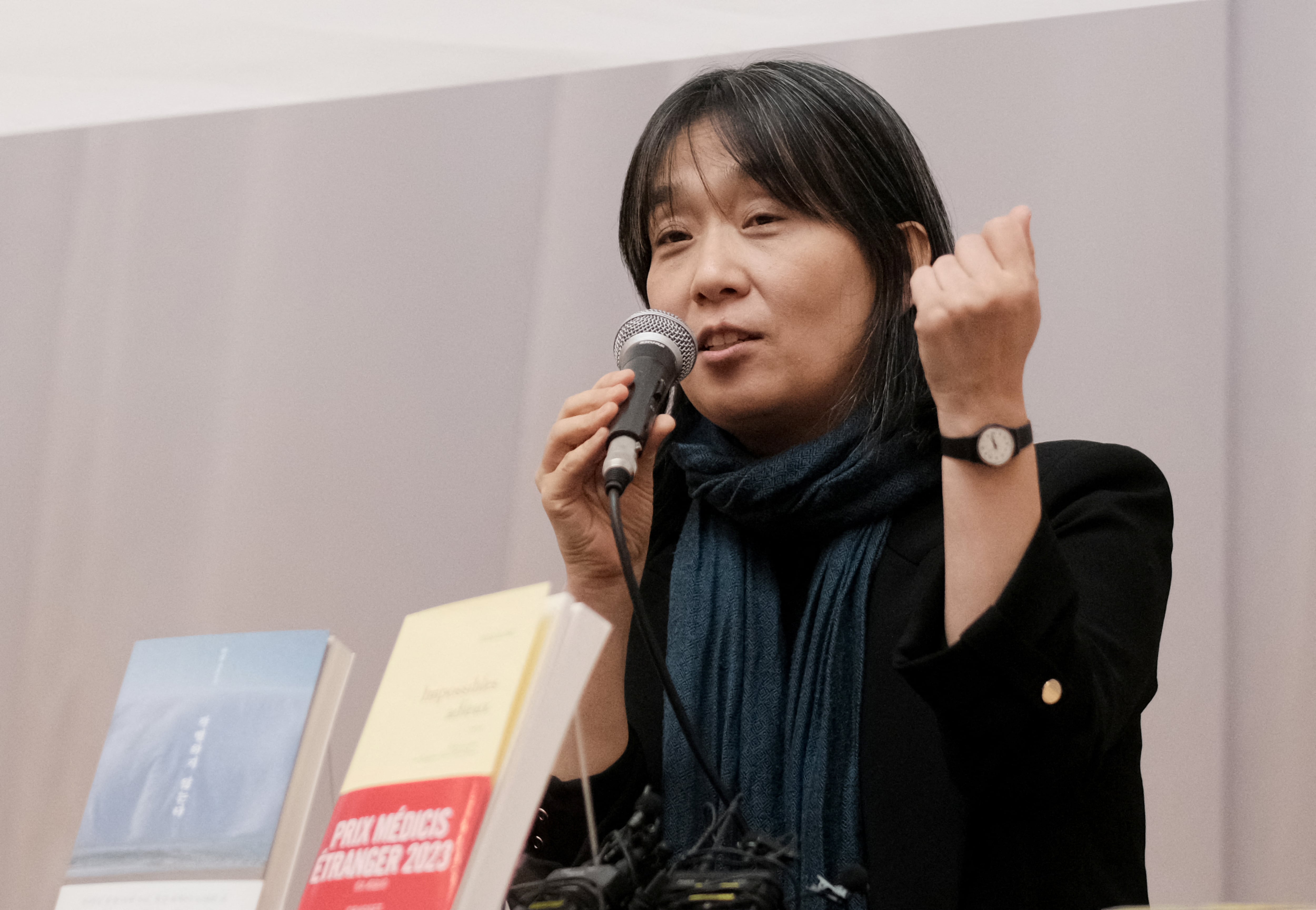“All the trees in the world seem like brothers to me,” says Yeonghye, the protagonist of the novel The vegetarianwhen he tries to explain why he is taking to that extreme the renunciation not only of eating meat, but of living in a way that he believes is unhealthy. The phrase summarizes her utopian aspiration: to become a tree-woman and extend her roots towards others to relate in another way, physically as well. That is why he puts the body at the center and gives sex a key role, because Yeonghye refuses to have his body treated like so many others, until he offers one of the most refined oriental shows in recent times.
When Han Kang posted The vegetarianthe South Korean critic “pulverized it,” its Spanish translator Sunme Yoon told me one afternoon in Seoul. Sunme Yoon added that the majority of critics were basically men of a certain age, in any case old-fashioned and, therefore, guardians of an ultra-patriarchy that received the novel as an insurrection that had to be crushed so that nothing much changed. All this in a society with the highest percentage of suicides in the world and a staggering rate of shamans, the way that too many women find to release a few truths through screams and gestural fury.
Han Kang chose another formula. The writing. He invented a Yeonghye that was not going to go through the tube of regulation or the ever-increasing consumption of alcohol and meat – restaurants are still famous in Seoul deboshintangdog soup—, neither by the frenetic pace of a country at the technological forefront, nor by the vertigo of a world doomed to voracious and indifferent consumption. No. Yeonghye appeared to update Melville’s Bartleby character’s “I’d rather not.” “I don’t want to do it,” she decides.
On this day of Nobel celebration, I focus on The vegetarian because it is the book that changed Han Kang’s life and united me, by writing its prologue, with her. And because with that novel the order was destroyed thanks to a delicate and confident protagonist who gives her body to pleasure, intuition and beauty, literally to art, pointing out a path to follow. The combination earned him the Booker in 2016, to the bewilderment of his alleged executioners and the joy of Iolanda Batallé, the editor of Ratawhich published it in Spanish and Catalan for a modest price, because when it was hired it had not yet won the award. (Why did that fleeting publishing house, which has two Nobel Prizes and three Man Booker Prizes, disappear?) Since then, we have been hardening ourselves and enjoying this author who tries something different in each book, wanting to know more, other human angles.
To know better, Han Kang leans towards silence. He speaks justly, he moves carefully, he is kind. He radiates the same respect that permeates his literature. When we met in Barcelona, he ordered a menu worthy of Yeonghye. Months before, I had told him about my trip across the border of the two Koreas in search of the white tiger. At the table, Han Kang smiled and handed me a small package. It contained the framed painting of the beautiful tiger that I look at as I type this article, happy for the award of a Nobel to this writer as brave as she is subtle, capable of recognizing your desires and honoring them, and of being abstracted when someone tells her: “if you don’t eat meat , the others will eat you.”

